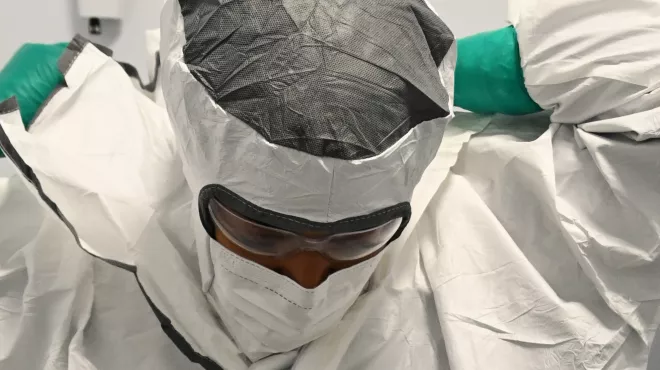Novartis prides itself on the breadth and depth of expertise in its global research organization. Ideas matter in drug discovery, and many of the more than 6,000 scientists, clinicians and business professionals at the Novartis Institutes for BioMedical Research (NIBR) are leaders in their fields who are blazing new trails in science and medicine. But no one company can do it alone. Success requires integration with the external life science ecosystem.
Enter Martin Seidel, head of Strategic Alliances at NIBR. His team serves as an antenna for the organization, picking up interesting trends and technologies from academia and biotech. Seidel and his colleagues forge collaborations and make deals. They identify discoveries—and companies—that complement Novartis research. A new collaboration with Aduro Biotech on STING agonists for oncology is a good example of their handiwork. They also spot opportunities for the organization to move in new directions.
The team often turns to venture capital firms for help with their mission. Some of these firms provide seed money for biotech startups, so they have connections and insights that can benefit Novartis. Take Atlas Venture, which is based in Cambridge, Mass. The firm has a reputation for identifying and funding ideas with scientific merit, making it an attractive partner. NIBR is investing in Atlas Venture Fund X, a $280 million endeavor that was announced last week.
Following is an excerpt from a conversation with Seidel about the partnership with Atlas and the biotech ecosystem.
Why is NIBR investing in the Atlas Venture fund?
First of all, investing in a high-quality venture capital fund is good for the life science ecosystem. We recognize that Novartis can’t work on everything, and we want to help exciting new biotech companies get off the ground. Some of these companies will be future partners and collaborators. In addition, we will likely get a financial return on our investment, and it’s also good for us from a general relationship-building perspective.
Aside from money, what’s in it for Atlas and the biotech startups?
There’s an advantage to having a company like Novartis invest in the fund. Unlike a typical financial investor in the fund (e.g., retirement funds, endowments, etc.), we frequently have expertise in a nascent biotech company’s field of research. If Atlas is thinking about starting a company, they’ll often approach us, among others, to pressure test the idea and refine the business plan. We can provide biological or clinical insight and help sharpen the focus to create something that will be attractive to big pharma.
Do you follow the progress of these young companies?
As a fund investor, we have a front-row seat. We receive regular updates on the portfolio companies, get a close look at the science, and get to know the people involved. When it comes time for one of these biotech companies to license their technology or make a deal, we want to be at the top of their Rolodex. We won’t have any more rights to a deal than a company coming in off the street, but relationships matter in this industry.
Novartis invested in a previous Atlas Venture fund. Did that investment lead to any deals?
We did deals with 4 of the 19 companies that were incubated by Atlas Fund IX. We’ve announced the deals with Intellia, Surface and Raze, and a fourth deal will be announced soon. Intellia holds key intellectual property in the hot field of CRISPR/Cas9-based gene editing, Surface has immuno-oncology programs that complement our own, and Raze works on cancer metabolism, which is an emerging area of oncology. These deals were a win for Novartis, a win for Atlas, and a win for biotech. Ultimately, they might mean more and better treatments for patients.



